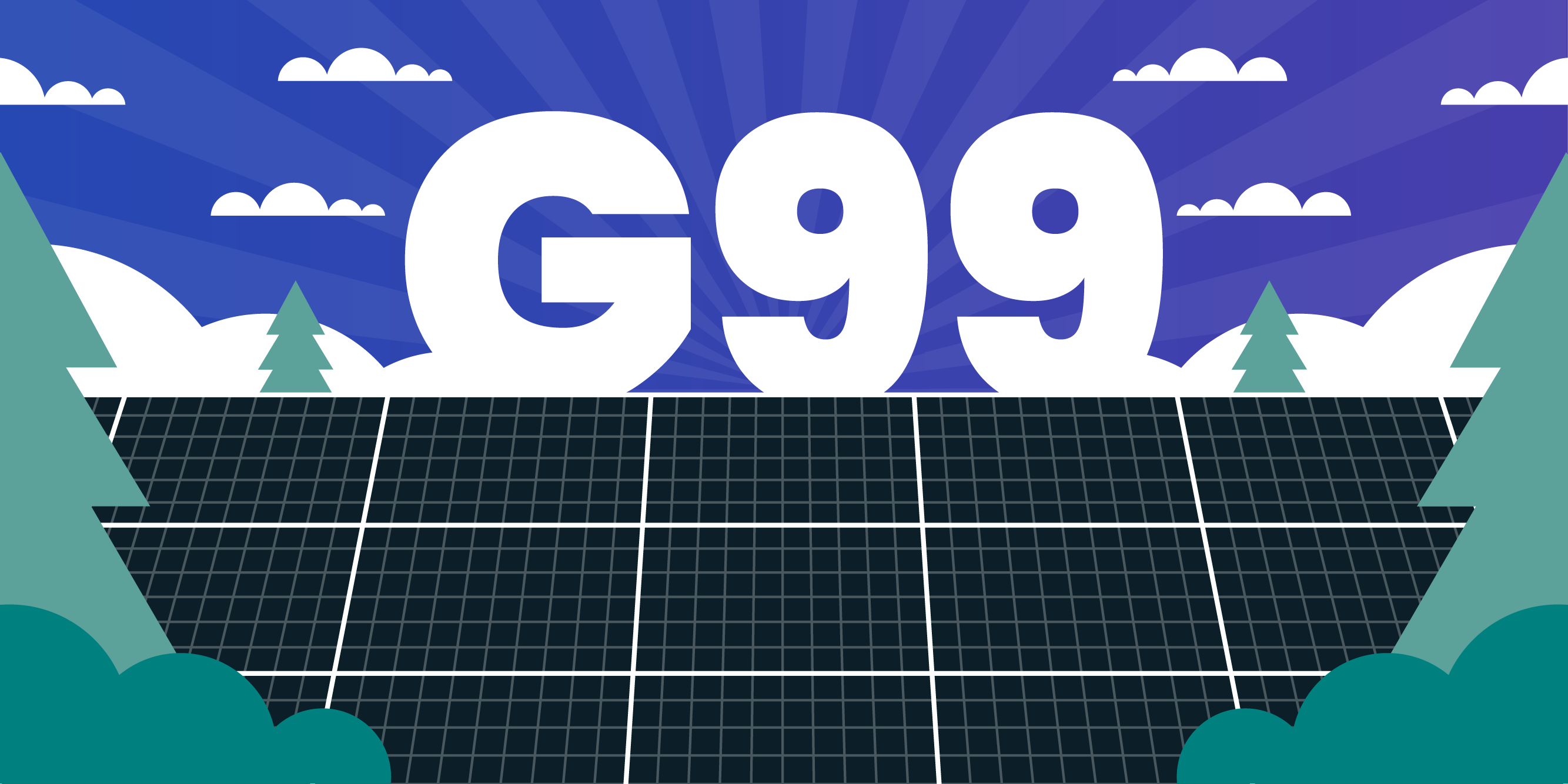What Is a G99 Certificate and Why Do You Need One for Solar Panels?
If you’re researching how to maximise your solar energy setup, you might have come across the terms G98 or G99 certificates. These documents play a crucial role in how your solar and battery system works with the electricity grid, especially if you want to export energy.
In this guide, we’ll explain what a G99 certificate is and why it’s important. We’ll also show you how Loop Optimise can help you make the most of your solar investment.
What Is a G99 Certificate?
A G99 certificate grants permission to export electricity from your home to the grid at a rate higher than the default limit of 3.68kW. For smaller systems, under this threshold, a G98 certificate is sufficient and automatically issued - this has to be applied for by the installer. But, for larger systems, the G99 form ensures that your export meets the requirements for grid safety and efficiency.
To put this in perspective:
- Each solar panel typically produces around 400 watts.
- If your system includes more than 10 panels (or exceeds 3.68kW capacity).
Got a Home Battery?
You could save £360 a year with Loop Optimise - our automated AI Home Energy Management System. Simply sign up, sit back and let Loop Optimise do its work!
Why Is a G99 Certificate Important?
A G99 certificate is essential for systems exceeding the 3.68kW export limit, enabling you to maximise your solar setup's potential. Without it, your system won’t be authorised to export surplus electricity above this threshold, limiting both financial returns and environmental benefits. If your capacity is above the limit, the G99 ensures you can fully utilise and profit from your investment.
How Do You Get a G99 Certificate?
Thankfully, getting a G99 certificate isn’t something you need to handle alone. When you install a solar system your installer may be able to take care of the application as part of the process if requested. While the application itself is free, your installer may charge an administration fee for handling the paperwork.
If you’re unsure whether you have a G99 certificate, check with your solar installer. You should also have a copy, which may be included with the paperwork for your hardware. Your installer can confirm whether this step was completed during your installation.
How Loop Optimise Helps You Get More from Your Green Tech
If you already have solar panels and a home battery, Loop Optimise can help you make the most of your setup. This advanced Home Energy Management System (HEMS) uses cutting-edge AI to maximise your earnings - helping you buy low and sell high, without any manual input.
During the sign-up process for Loop Optimise, we’ll ask whether you have a G99 certificate if your battery and inverter have discharge rates greater than 3.68kW. Why? Because this certificate ensures you can export electricity at higher rates, enabling you to get the most from Loop Optimise’s smart features.
Key Takeaways
- A G99 certificate may be needed if your solar system’s inverter allows exports exceeding 3.68kW. While not always a requirement, it enables faster energy export to the grid, potentially unlocking greater savings.
- Your installer should handle the application for you, but it’s worth checking if your system qualifies.
- If you’re using Loop Optimise, having a G99 certificate ensures that Loop Optimise can take full advantage of your hardware, helping you increase your earnings.
Whether you’re new to solar or optimising an existing setup, understanding the role of a G99 certificate is crucial. Ready to make the most of your energy system? Explore how Loop Optimise can help you take your battery to the next level.
Join Now! Free for a Limited Time Only
Unlock effortless energy savings and maximise your earnings with Loop Optimise - our AI-powered Home Energy Management System.








